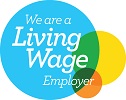
Your own personal NAV
Some of you will be familiar with the concept of a fund’s net asset value (NAV) which tallies up the assets and liabilities in an investment portfolio and provides a net worth figure that you can then compare over time. If you are like me, you might try to figure out your own personal NAV by using a spreadsheet to keep track of your income and spending to make sure your personal finances are on track.
In the assets column I might have a pension, a savings account, an investment account and a current account. If I was being honest the latter would be in my liabilities column for most of the month. Also in that column might be a credit card, a car financing loan and a mortgage.
But it's all a bit hard to keep track of most of the time, as all these accounts are with different providers, some of whom aren’t online or only issue statements infrequently. This is where the FCA’s Open Finance initiative comes in, which could make finding out your personal NAV much easier.
The FCA set out a number of discussion topics and potential use cases in a call for input that ends in October. In summary, an individual, or even a family group, could pool together all of their financial data into one place, via either one of their existing financial institutions or a third-party provider’s app/platform. This would then show all of the account balances and overall net wealth of the family.
This is a natural extension of open banking that started a few years ago and provided consumers with the ability to grant third parties access to their current account data (such as to savings providers who sweep the difference for rounded-up purchases to the nearest pound into a savings account, or for price comparison sites to analyse your utility bills to see if you could get a cheaper product elsewhere).
There are interesting use cases in our sector, particularly in the advice space, where a (real or virtual) financial advisor could be presented with all of your account data very easily without going through the lengthy fact-find process. The investor could then be offered formal financial advice, or more informal guidance or nudges to improve their overall financial position. Over time I’m sure we will see lots of other uses emerge, as consumers get used to a greater ability to access and leverage their own data.
Having thought a lot about this with members, we are currently finalising our response to the FCA’s call for input, and welcome further member input to help shape our submission. For more information, please see our webpage, or even better join our webinar with KPMG on 9 September or get in touch.






